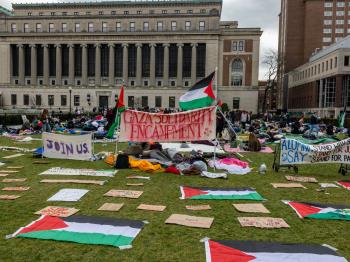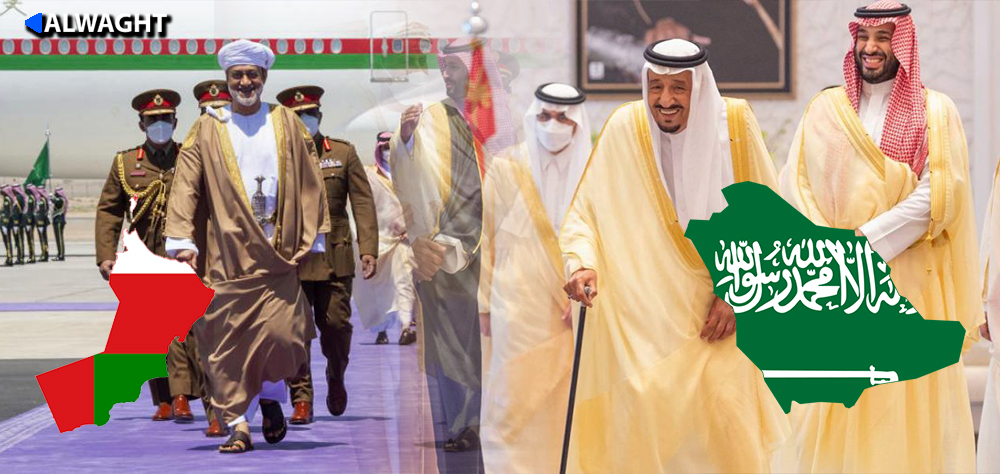Alwaght- Saudi Arabia hosted On Sunday Sultan Haitham bin Tarik of Oman who arrived in Riyadh for a two-day visit, the first overseas trip since he took the office in January 2020. Made at the invitation of the Saudi King Salman bin Abdulaziz, the visit drew media and observer attention. Yemen war, Syria crisis, nuclear talks with Iran, boost of the (Persian) Gulf Cooperation Council, and bilateral cooperation were the possible points of discussion during the trip. Here is a question: What goals do both the Saudi and Omani leaders pursue behind the trip?
Bilateral motivations: Bin Salman has political dreams, Sultan Haitham seeks economic benefits
In addition to strengthening bilateral relations, Saudi Arabia and Oman pursues specific goals. Saudi kingdom's regional policies are currently suffering from deep losses and frustration. On the one hand, Prince Mohammed's aggressive policy in West Asia has run into an impasse and on the other hand Riyadh has undergone substantial pressures with arrival to power of Joe Biden, and bin Salman finds his post increasingly at stake.
This is a driving force behind the Saudi de facto ruler embarking on review of regional policy as his failures expresses themselves more and more, while keeping as many regional actors as possible beside Riyadh. In mid-May, Prince Mohammed even gave the Qatari emir a warm reception in Jeddah, after a four-year crisis.
The invitation to the Omani ruler should be read as part of the new foreign policy. The Saudi ruler wants Muscat on board Saudi Arabian regional plans. Economic privileges like the suggestion to synchronize the Saudi 2030 Vision with the Omani 2040 Vision are on the Saudi agenda to bring Oman to its side.
Oman has been grappling with economic troubles lately and last month the once-quiet sultanate witnessed protests complaining about the worsening living conditions. In May and also June protests turned violent as the security forces were deployed to disperse the protestors who rose their voices against layoffs and worrisome economic situation. Most of the protestors were steel and aluminum workers lost their job amid troubles hitting the country’s industries.
The interesting point is that the demonstrations were first under bin Tarik. To address the problem, which has the potentials of broadening, Sultan Haitham takes steps to improve the economy and living conditions as low oil prices and coronavirus crisis left the economy suffering.
Bin Salman unsuccessful efforts now at Muscat station
Although bin Salman seeks to lead Oman through the petrodollars to full compliance with his regional policies, the reality is that such an event seems highly unlikely for two main reasons: First, Oman has a traditional policy of neutrality and desire for mediation in crises and this stands as a major obstacle ahead of Muscat tendency to the Saudis. In the past few decades, the late Sultan Qaboos always put the policy of mediation and neutrality on top, and Sultan Haitham has shown that there will be no change in this principle. After Qaboos death, the Saudis and Emiratis tested their chances to attract the new sultan to their side, but he in statement and practice showed he follows the policy of "friend to all and enemy to none."
Second, Oman has proven in past years it follows a path severely different from Saudi Arabia's in various regional cases and crises. Yemen crisis, the Saudi push to seize Yemen's Al Mahra province that shares borders with Saudi Arabia, difference over Ansarullah Movement's role in Yemeni future, Iran nuclear program and relations with Tehran, normalization with the Israeli regime, and Qatar crisis are cases where the two sides' stances conflict. More importantly, a day before this visit, Oman's Foreign Minister Sayyid Badr bin Hamad Al-Busaidi told Asharq Al Awsat newspaper his country "won't" be the third Persian Gulf Arab country to normalize with Israel.
"We support the legitimate rights of the Palestinian people and we respect sovereign decisions of countries as we expect other countries to respect ours," Al-Busaidi told the London-based Arab-language newspaper.



























